Are you looking to craft the perfect academic reference letter? Whether you're a professor supporting a standout student or a colleague endorsing a peer's academic pursuits, it's essential to capture their achievements and potential in a heartfelt way. In this article, we'll share a comprehensive template and tips to help you articulate your observations clearly and compellingly. So, let's dive in and explore how you can make your reference letter truly shine!
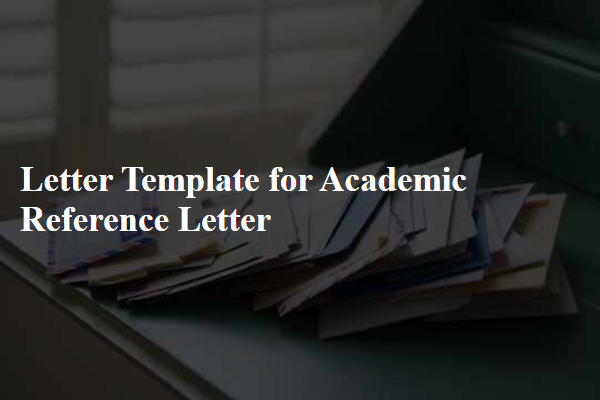
Personalized Salutation
In the realm of academic achievement, a personalized salutation in a reference letter significantly establishes a connection between the recommender and the recipient. This approach takes into account the specific needs of individuals, fostering an environment that values the unique qualities of students or colleagues. For instance, addressing the letter with a warm greeting, such as "Dear [Recipient's Name]," or "To the Esteemed Admissions Committee," enhances the formality of the interaction while maintaining a personable touch. Such consideration can enrich the perceived value of the endorsement, ensuring that the recipient feels acknowledged and appreciated. This practice highlights the importance of creating meaningful relationships within academic settings, facilitating a positive impression that could influence decisions in educational or professional pursuits.
Introduction & Relationship Context
An academic reference letter serves as a pivotal endorsement for students seeking to advance their education or career opportunities. Typically authored by a professor or academic advisor, this letter outlines the author's relationship with the student, providing insight into their qualifications and character. For instance, if the recommending professor taught the student in Advanced Physics at Harvard University, where the professor has been faculty since 2015, they might detail the student's performance, showcasing an example such as achieving a score of 98% on the final exam. This context establishes the credibility of the endorsement while also highlighting the student's skills and contributions within a specific academic framework. Additionally, the professor may reference participation in collaborative research projects, lending weight to the student's ability to work in a team and tackle complex problems.
Applicant's Strengths & Achievements
The applicant demonstrates exceptional analytical skills, evidenced by their outstanding performance in advanced mathematics courses, maintaining a GPA of 3.9 out of 4.0. They played a pivotal role in the university's robotics team, leading a project that secured first place at the National Robotics Competition in 2022, showcasing their leadership and teamwork abilities. In addition, the applicant has conducted research at the university's environmental science lab, contributing to a published paper in the Journal of Environmental Studies, which highlights their commitment to scholarly work and ability to collaborate with faculty. Their dedication is further reflected in over 200 hours of volunteer work with local charities, illustrating a strong sense of community involvement and social responsibility.
Specific Examples & Anecdotes
In academic contexts, a robust reference letter, enriched with specific examples and anecdotes, can significantly enhance a candidate's profile. For instance, when discussing a student's research skills, mentioning a specific project, such as their groundbreaking thesis on renewable energy sources, can demonstrate not only their knowledge but also their commitment. Detailing the student's active participation in a prominent conference, like the International Conference on Sustainable Development held in Berlin in 2022, where they presented their findings, showcases their ability to engage with the scholarly community. Further, citing a particular instance where they effectively collaborated with peers to organize a workshop could illustrate teamwork and leadership capabilities. By integrating concrete examples such as these, the reference letter vividly paints a picture of the candidate's qualifications and potential.
Conclusion & Endorsement
In conclusion, I wholeheartedly endorse [Candidate's Name] as an exceptional individual who possesses the skills and dedication necessary to excel in [specific field or program]. Their contributions during their time at [Institution or Organization Name], including [specific achievements or projects], demonstrate a remarkable capability for [specific abilities or traits]. I firmly believe [Candidate's Name] will make significant contributions to [mention future goals, such as academic programs or research communities] and will continue to inspire peers and faculty alike. I highly recommend [him/her/them] without reservation for [specific opportunity or position].

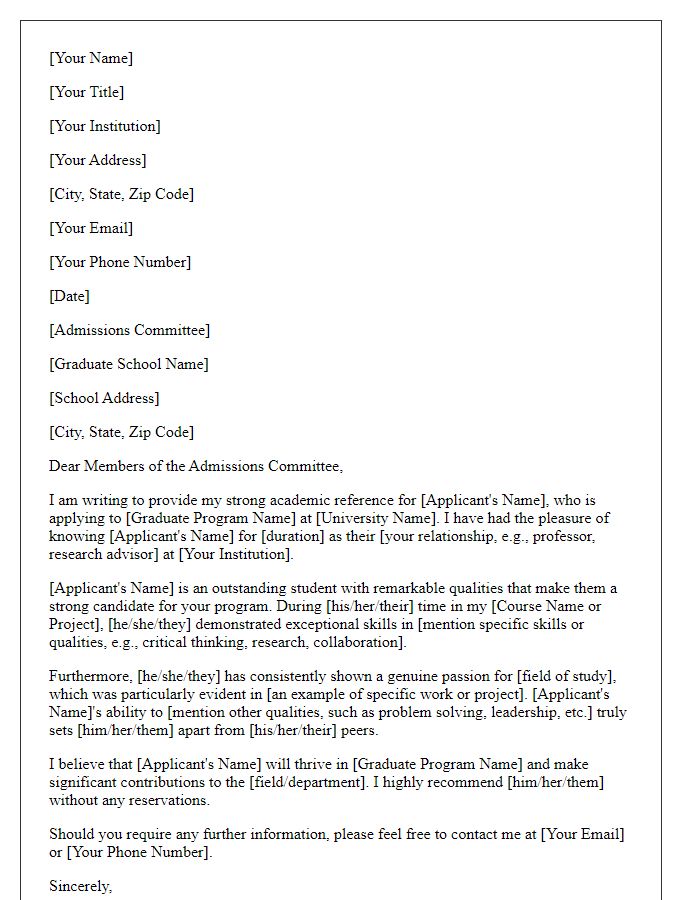
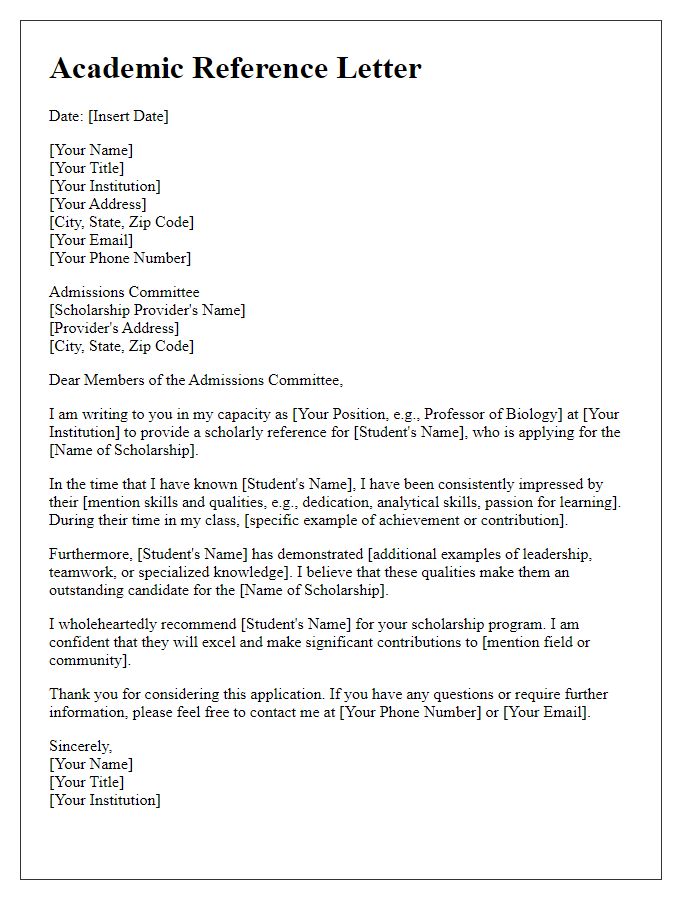
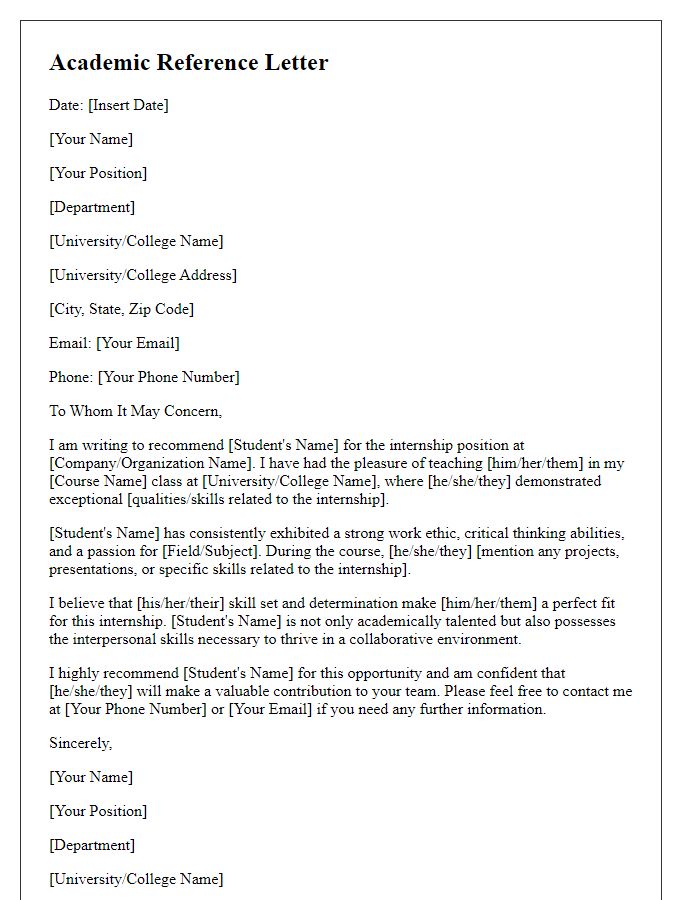
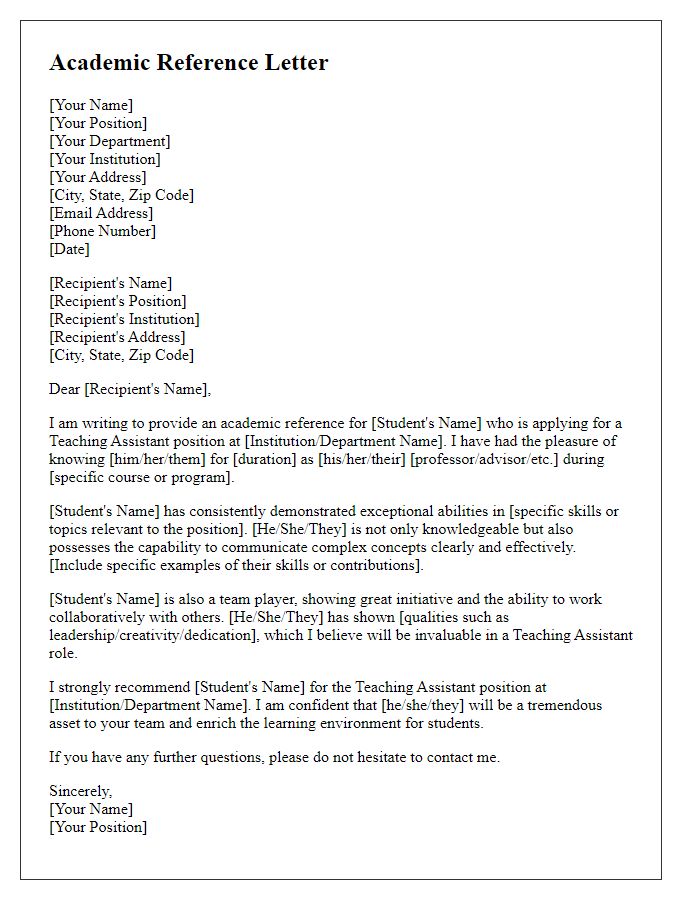
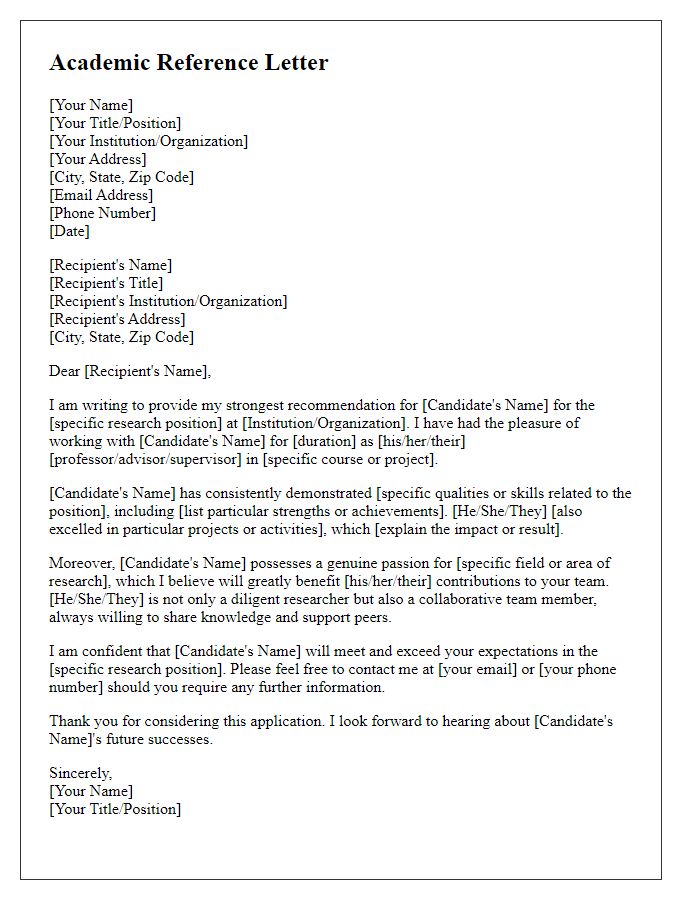
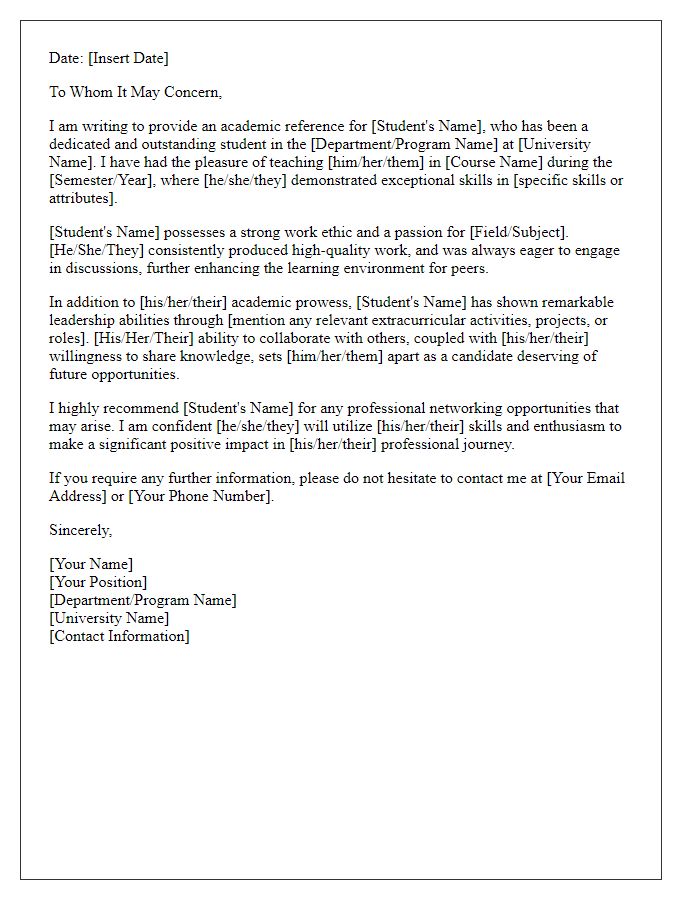
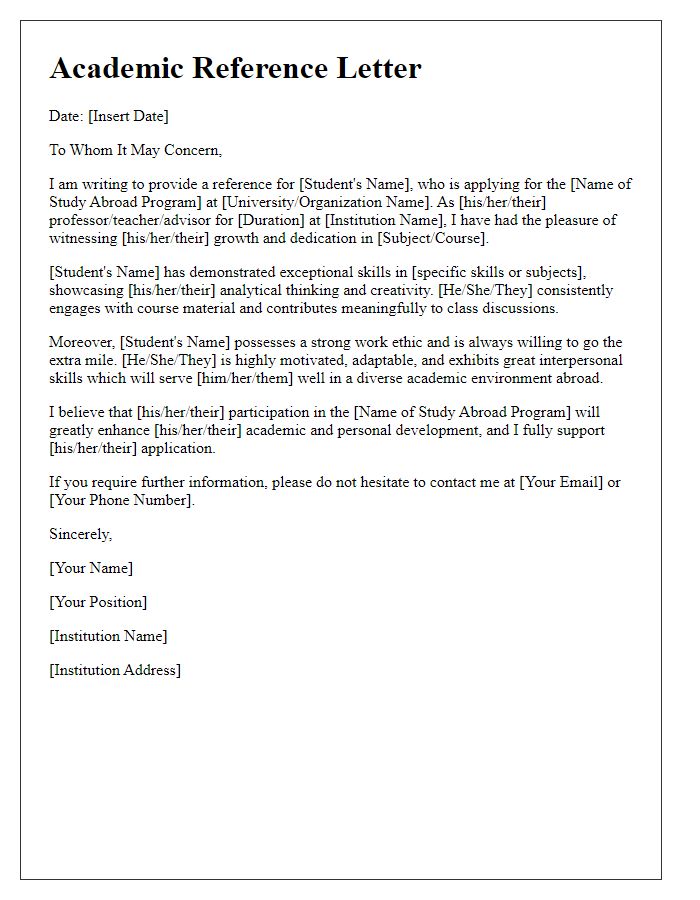
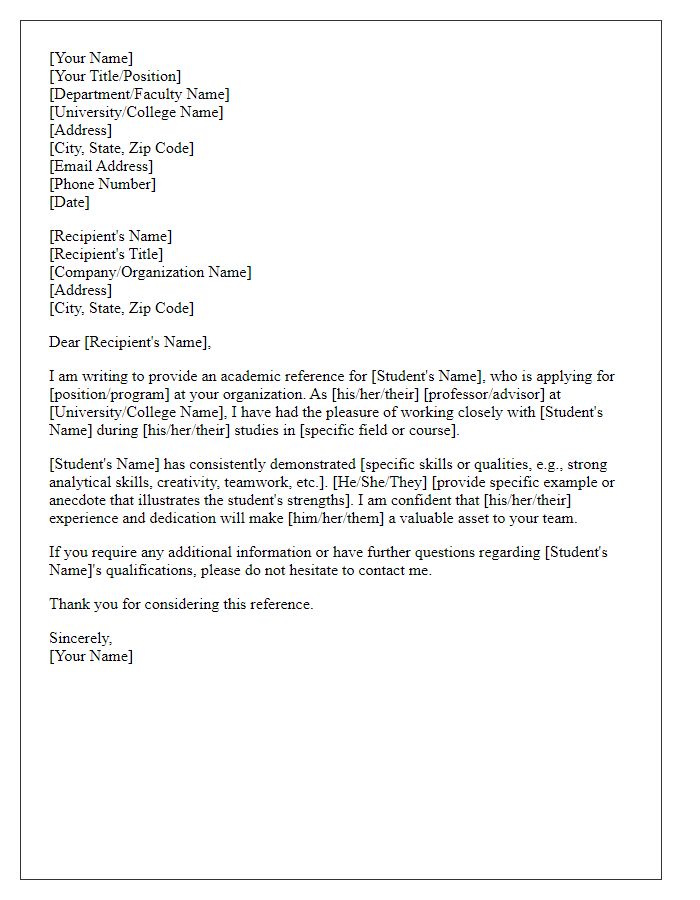
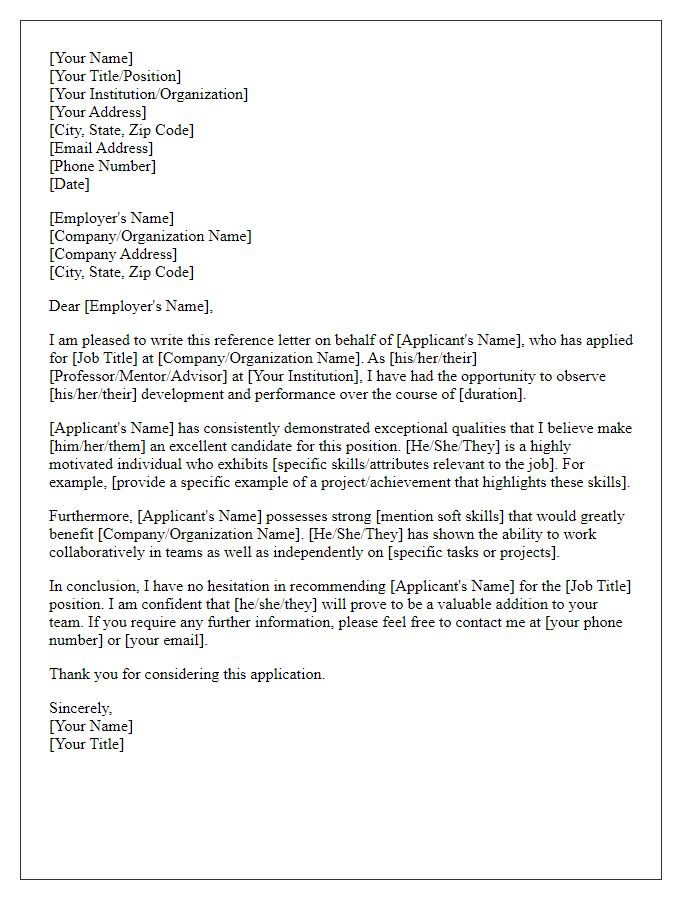
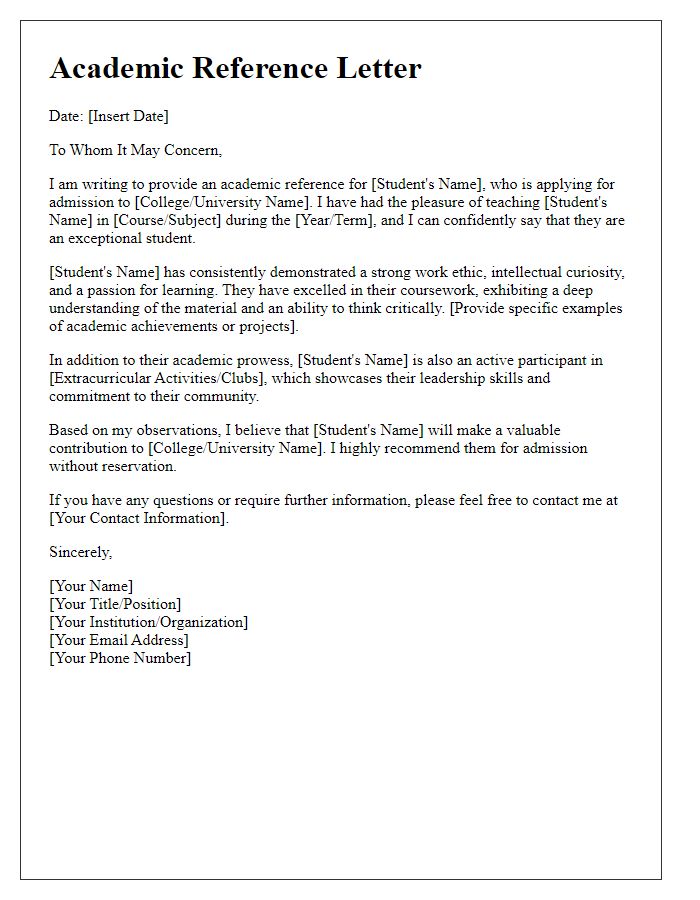


Comments